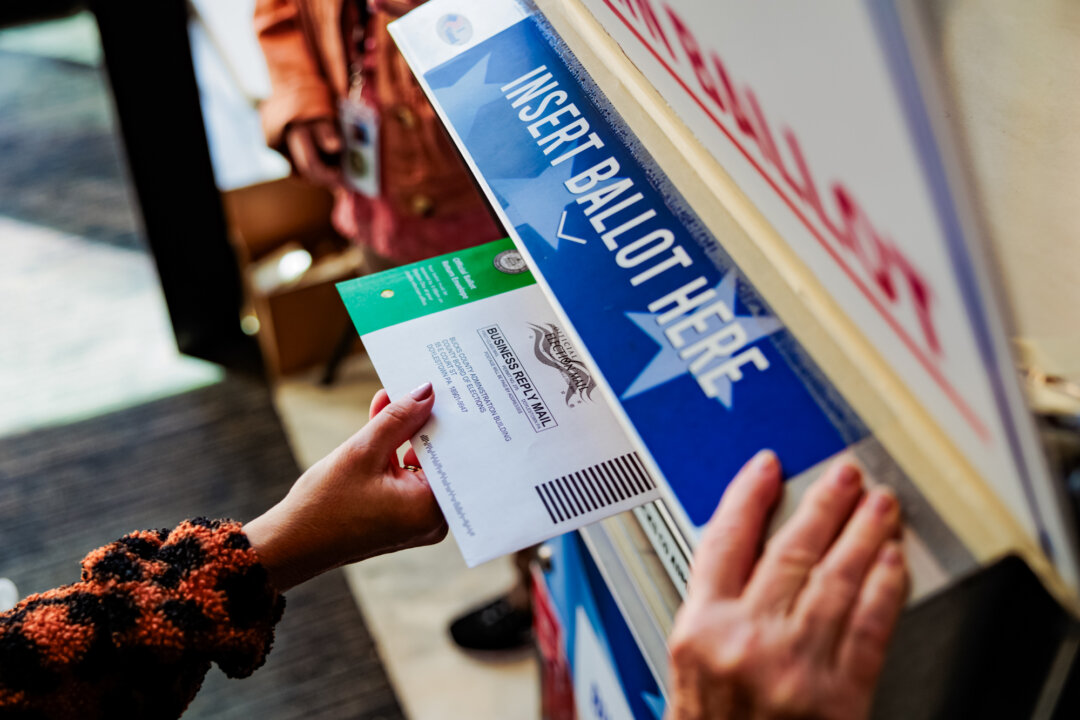A conservative nonprofit alleged that Pennsylvania failed to maintain accurate voter rolls and that 277,768 voters are ineligible in this election cycle.
A federal judge has denied a request from a conservative nonprofit organization to prevent over a quarter-million allegedly inactive voters from participating in the upcoming presidential election in Pennsylvania.
On Nov. 4, Judge Robert D. Mariani of the U.S. District Court for the Middle District of Pennsylvania ruled against the plaintiffs, Citizen AG (also known as 1789 Foundation) and an individual voter, who argued that 277,768 individuals on Pennsylvania’s voter rolls were ineligible due to a failure to respond to confirmation notices in 2020 and lack of participation in subsequent federal elections.
Mariani described the plaintiffs’ assertion as “without proper foundation” and “purely speculative.”
Filed on Oct. 29, the lawsuit alleged that Pennsylvania Secretary of State Al Schmidt failed to maintain accurate voter rolls, as required by the National Voter Registration Act (NVRA), potentially allowing ineligible voters to cast ballots on Election Day. The plaintiffs argued that the NVRA requires states to send confirmation notices to voters who may have changed residency and mandates removal from rolls if those voters do not respond and do not vote in two consecutive federal elections.
The plaintiffs sought an emergency order compelling Schmidt to provide records on these 277,768 voters and to prevent any confirmed inactive voters from casting votes in the upcoming election.
“Citizen AG and its Pennsylvania members have legitimate concerns about the fundamental right to vote being undermined, and when state officials blatantly ignore and violate their duties under well-established federal law, those concerns are only exacerbated,” the plaintiffs wrote their complaint, which also asked the court to compel Pennsylvania officials to administer an NVRA-compliant voter list maintenance program in the future.
“Millions of Pennsylvanians are concerned with the integrity of the electoral process and this concern translates into discouragement to participate in the democratic process and eligible registered voters become filled with fear that legitimate votes will be nullified or diluted, or their right to cast a vote will be stripped away entirely,” the complaint reads.
In a brief opposing the plaintiffs’ request, the Pennsylvania Secretary of State raised a number of issues, including saying that the plaintiffs lacked standing, that they failed to state a claim for relief, that there exists no emergent or imminent harm that would support an emergency injunction, and that they waited too long to file their complaint.
“Because any urgency, then, is of Plaintiffs’ own making, they are not entitled to emergency or preliminary relief,” Schmidt’s attorneys wrote. “Having strategically delayed the filing of this case, Plaintiffs’ cry of ‘emergency’ should be recognized for what it is: a desperate attempt to sow distrust in advance of the November 2024 election.”
The brief also indicates that Schmidt has indicated that the records the plaintiffs seek would be provided by Nov. 12, which defense attorneys argue is “fully compliant” with state law.
In siding with Schmidt and dismissing the case, the judge found that the plaintiffs had failed to demonstrate a likelihood of success on the merits of the case, and that they had not met their burden with respect to any entitlement to preliminary injunctive relief, including that they would suffer irreparable harm if their request emergency relief is denied.
A request for comment on the ruling sent to Citizen AG was not immediately returned.

